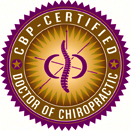An Aspirin a Day May Take Your Vision & Hearing Away!
 Saturday, January 19, 2013 at 4:41PM
Saturday, January 19, 2013 at 4:41PM Non-steroidal anti-inflammatory drugs (NSAID's) are widely used for general pain relief and specific inflammatory control after an injury. Additionally, there is an increasing number of people that are using specific NSAID's and aspirin for perceived cardio-vascular protective effects. Of concern, there have been a number of scientific publications discussing the potential negative health effects of regular use of NSAID's whether for prevention, pain, or other use. Two recent publications have identified some serious negative health risks that appear to be linked to regular aspirin and NSAID use:
- The Beaver Dam Eye Study1
In a longitudinal population-based study of age-related eye diseases, Klein and colleagues1 examined the association of aspirin use with the incidence of age-related macular degeneration (AMD). They performed examinations every 5 years over an approximate 20-year period (1988-2010). There were 4,926 participants between the ages of 43 to 86 years. Study participants were asked if they used aspirin at least twice a week for more than 3 months; which they termed 'regularly'.
The study identified that 'regular' aspirin use 10 years prior examination was associated with late AMD with an estimated incidence of 1.76% in regular users versus 1.03% in non regular aspirin users. Klein and colleagues concluded: "...regular aspirin use 10 years prior was associated with a small but statistically significant increase in the risk of incident late and neovascular AMD."
- Hearing Loss from Department of Medicine, Brigham and Women's Hospital in Boston, MA2,3
In 2010, Curhan and colleagues2 examined "the independent association between self-reported professionally diagnosed hearing loss and regular use of aspirin, nonsteroidal anti-inflammatory drugs (NSAIDs), and acetaminophen." The participants were 26,917 men between the ages of 40-47 beginning in 1986 and were administered a follow-up every 2 years for the duration of the study. They2 found: "For NSAIDs and acetaminophen, the risk increased with longer duration of regular use. The magnitude of the association was substantially higher in younger men. For men younger than age 50 years, the hazard ratio for hearing loss was 1.33 for regular aspirin use, 1.61 for NSAIDs, and 1.99 for acetaminophen".
In a follow up investigation in 2012, these authors3 prospectively evaluated the frequency of aspirin, ibuprofen, and acetaminophen use and risk of hearing loss in 62,261 women aged 31-48 years. In this study of females, the regular use (2 or more times per week) of ibuprofen and acetaminophen (not aspirin) was statistically linked with an increased risk of hearing loss.
References
- Klein BEK, et al. Long-term Use of Aspirin and Age-Related Macular Degeneration JAMA. 2012;308(23):2469-2478.
- Curhan SG, Shargorodsky J, Eavey R, Curhan GC. Analgesic use and the risk of hearing loss in women. Am J Epidemiol 2012;176(6):544-54.
- Curhan SG, Eavey R, Shargorodsky J, Curhan GC. Analgesic use and the risk of hearing loss in men. Ann J Med 2010;123(3):231-237.
 CBP Seminars | Comments Off |
CBP Seminars | Comments Off | 

